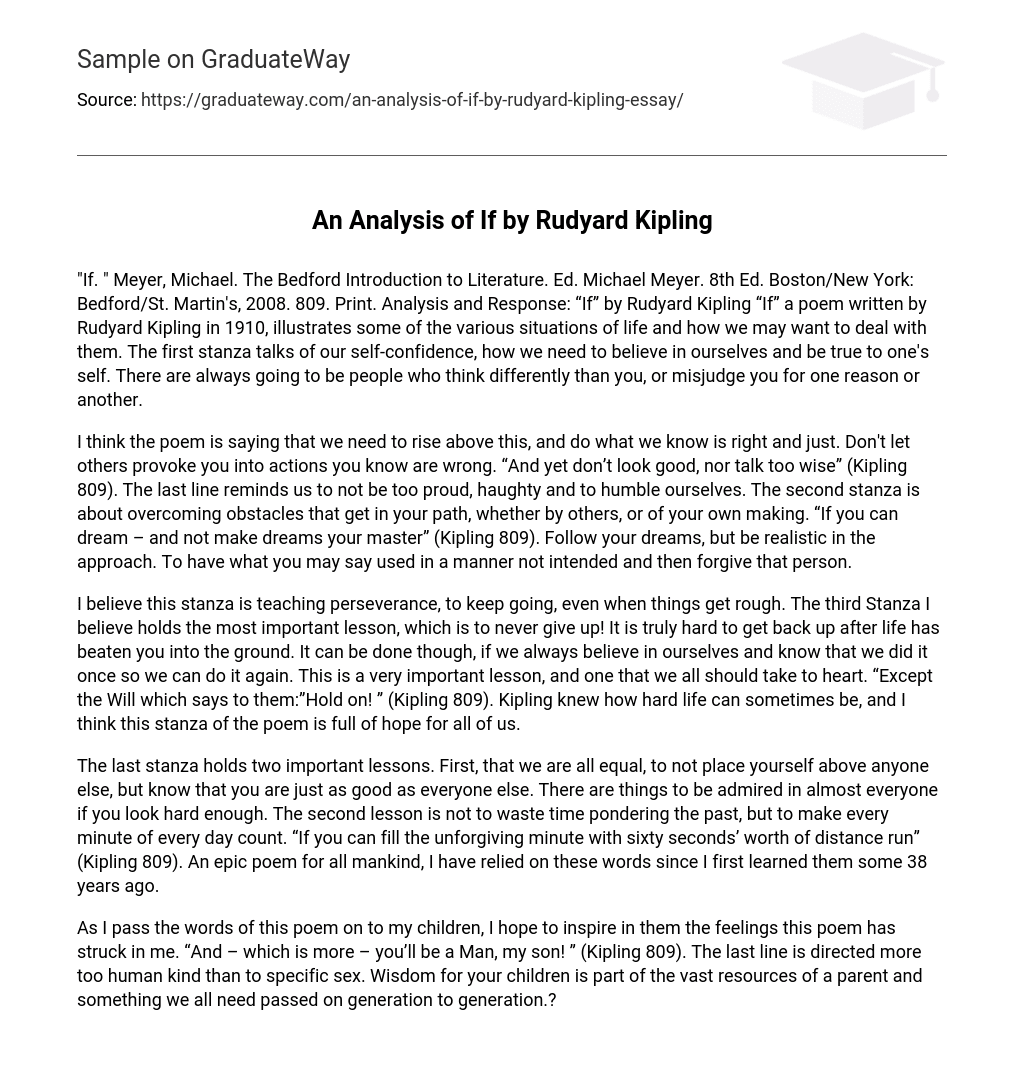“If. ” Meyer, Michael. The Bedford Introduction to Literature. Ed. Michael Meyer. 8th Ed. Boston/New York: Bedford/St. Martin’s, 2008. 809. Print. Analysis and Response: “If” by Rudyard Kipling “If” a poem written by Rudyard Kipling in 1910, illustrates some of the various situations of life and how we may want to deal with them. The first stanza talks of our self-confidence, how we need to believe in ourselves and be true to one’s self. There are always going to be people who think differently than you, or misjudge you for one reason or another.
I think the poem is saying that we need to rise above this, and do what we know is right and just. Don’t let others provoke you into actions you know are wrong. “And yet don’t look good, nor talk too wise” (Kipling 809). The last line reminds us to not be too proud, haughty and to humble ourselves. The second stanza is about overcoming obstacles that get in your path, whether by others, or of your own making. “If you can dream – and not make dreams your master” (Kipling 809). Follow your dreams, but be realistic in the approach. To have what you may say used in a manner not intended and then forgive that person.
I believe this stanza is teaching perseverance, to keep going, even when things get rough. The third Stanza I believe holds the most important lesson, which is to never give up! It is truly hard to get back up after life has beaten you into the ground. It can be done though, if we always believe in ourselves and know that we did it once so we can do it again. This is a very important lesson, and one that we all should take to heart. “Except the Will which says to them:”Hold on! ” (Kipling 809). Kipling knew how hard life can sometimes be, and I think this stanza of the poem is full of hope for all of us.
The last stanza holds two important lessons. First, that we are all equal, to not place yourself above anyone else, but know that you are just as good as everyone else. There are things to be admired in almost everyone if you look hard enough. The second lesson is not to waste time pondering the past, but to make every minute of every day count. “If you can fill the unforgiving minute with sixty seconds’ worth of distance run” (Kipling 809). An epic poem for all mankind, I have relied on these words since I first learned them some 38 years ago.
As I pass the words of this poem on to my children, I hope to inspire in them the feelings this poem has struck in me. “And – which is more – you’ll be a Man, my son! ” (Kipling 809). The last line is directed more too human kind than to specific sex. Wisdom for your children is part of the vast resources of a parent and something we all need passed on generation to generation.?





